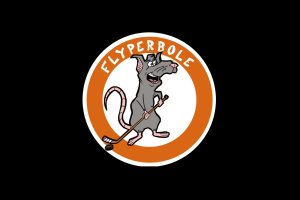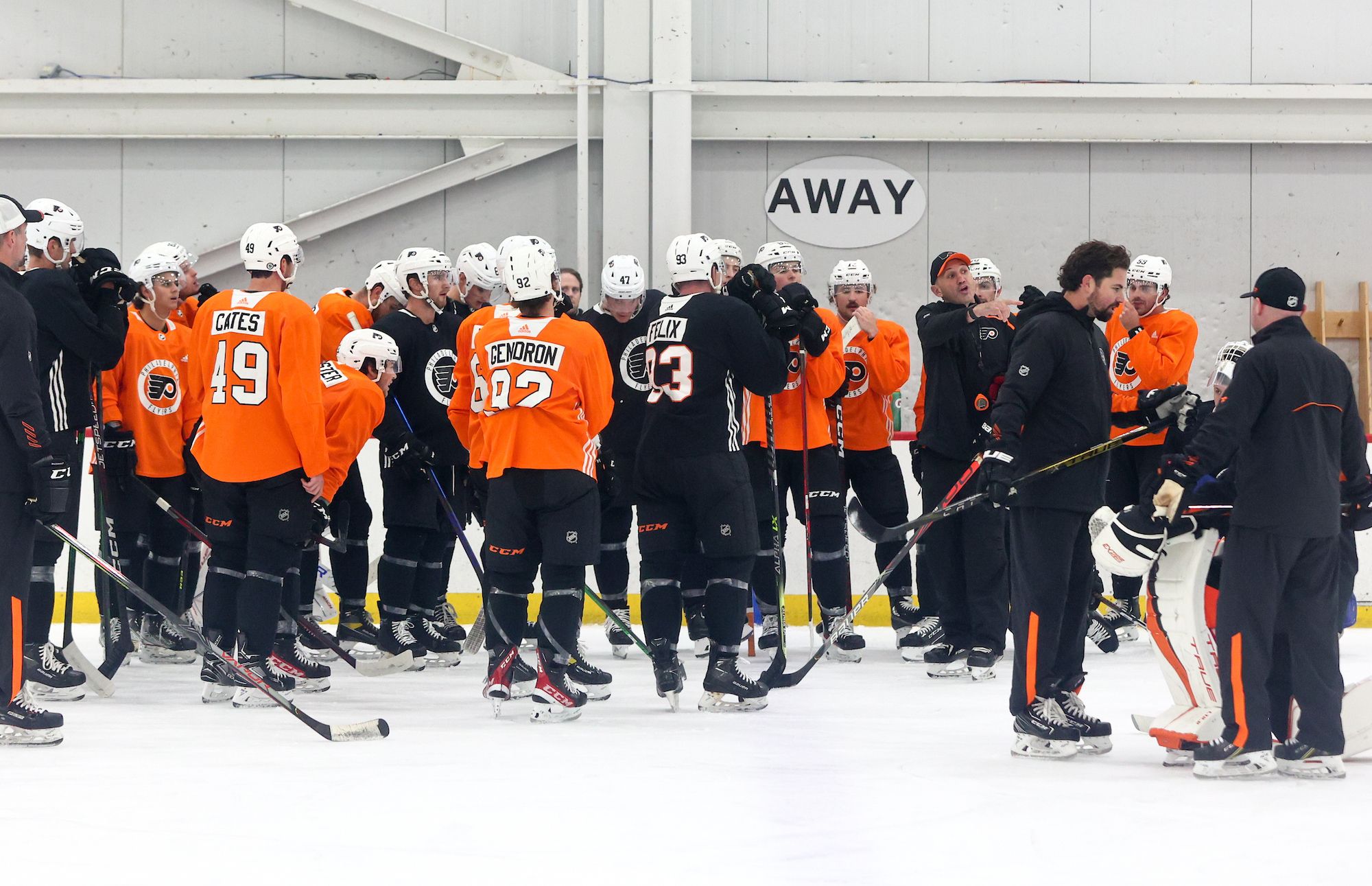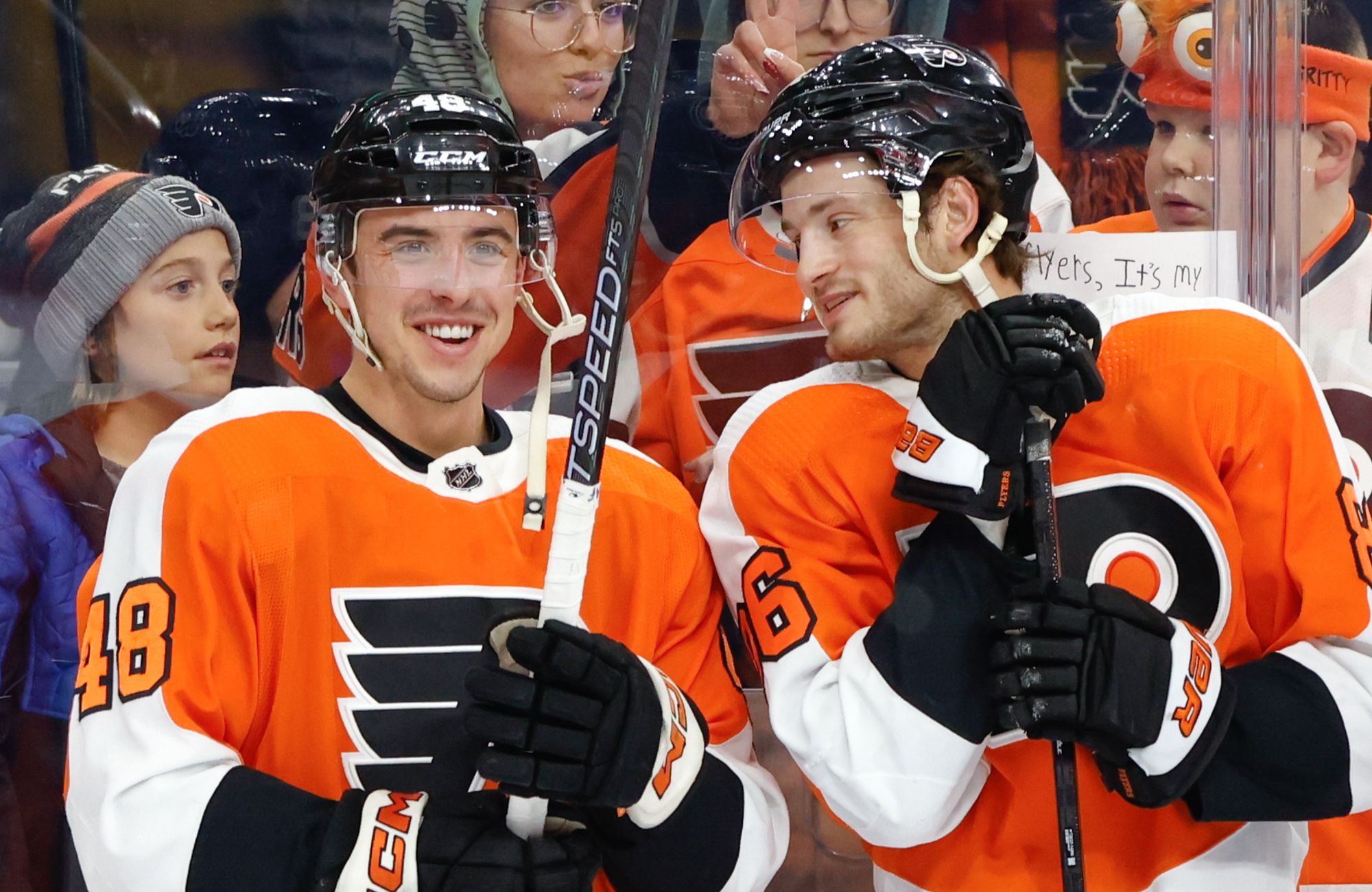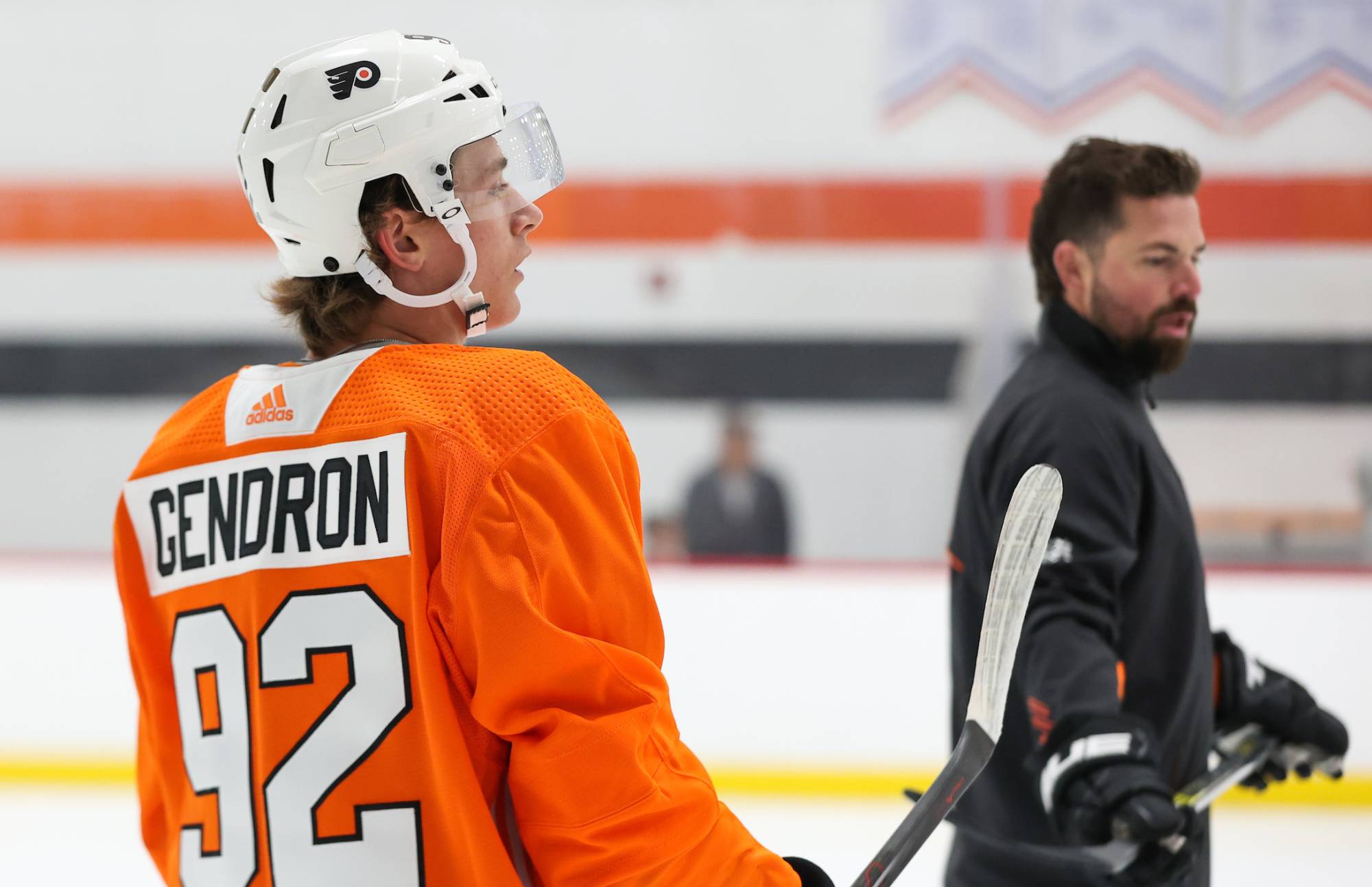Morning Observations is a new feature, where we break down the previous night’s game with an analytical eye.
- The Flyers were dominated last night literally from the opening shift. It was poor play in the defensive zone that allowed Columbus to jump on the Flyers early on, as Philadelphia seemingly averaged a turnover per shift. Both Blue Jacket first period goals came immediately after Flyers turnovers, one from Brayden Schenn and one from Nick Schultz. And considering the obvious roster limitations, stretches of defensive zone disaster are going to rear their heads on occasion. Dave Hakstol may have tightened up Philadelphia’s neutral zone play, but all of the dominance in the middle of the ice won’t matter if the Flyers can’t exit their own end.
- Philadelphia did clean up their defensive zone play in the second period, at least in terms of zone exits. But that simply exposed poor play in the neutral zone. The team’s big improvement in neutral zone outcomes has been a driving force behind the recent turnaround, but the Blue Jackets were able to carry play in the middle part of the game by dominating the entries battle. Too often, Columbus was able to enter the offensive zone with possession of the puck. The Flyers’ forecheck was surprisingly impotent, as the team struggled to win puck battles at both ends of the ice. In addition, their passing was simply not crisp, so they were forced to primarily play dump-and-chase hockey./
NHL.com Report | Highlights War-On-Ice.com Report | HockeyStats.ca Report | ExpectedGoals (xG) | HockeyViz.com | BSH Recap | Meltzer’s Musings
- One of the only bright spots of last night’s loss was the play of Shayne Gostisbehere, who scored his eighth point in eleven NHL games this season. It was the rare secondary assist that was totally deserved, as Gostisbehere went the length of the ice with the puck to create the rush, starting with a controlled zone exit and ending with a controlled zone entry. In the second period, it felt like the only time when the Flyers would be on the attack was when Ghost hit the ice. There’s been much talk about what Philadelphia will do once Mark Streit returns from injury, and there will almost certainly be salary cap hurdles for Ron Hextall when that day comes. But Gostisbehere will not be sent back down, if Ed Snider still holds power in this organization. He’s the best thing the team has going right now, and the defenseman is clearly NHL ready.
- It was already a game to forget for Luke Schenn, and unfortunately his late ankle injury will make it even more difficult for Schenn to put this performance out of his head. Schenn had one very good play – a breakout pass that sprung Michael Raffl for a breakaway – and an unending supply of terrible ones. Schenn was maybe the biggest offender in terms of poor defensive zone coverage, and it showed in the possession statistics. He spent the vast majority of the game in his own zone, trying and failing to regain control of the puck. His 24.14 percent Corsi For was a team-low. To top it off, Schenn fell awkwardly late in the game and may have suffered a serious ankle injury. Tonight’s struggles aside, Luke has done a passable job this season in the Hakstol system, so an extended absence would sting. It could also necessitate a call-up from Lehigh Valley for Tuesday’s game against the Islanders, as Radko Gudas still has one game remaining on his suspension.
- For the second straight night, the vaunted Sean Couturier line was defeated in puck possession. A few strong shifts in the third period inflated the on-ice numbers for Couturier, Simmonds and Read, but they were a liability through the first forty minutes. In the offensive zone, they simply lost too many puck battles, usually a strength for the trio. In addition, their neutral zone play lacked creativity and crispness. On more than one occasion, forwards were “just missed” with passes that could have caused dangerous rushes or breakaways. The good news is that these problems seem fixable – Couturier and Simmonds will likely be stronger on the puck after a few days of rest, and the trio’s execution on passes should fix itself as well. Still, two straight poor games for a line that in November could be trusted to deliver possession statistics north of 60% on a nightly basis is worth noting.
- I may not agree with Hakstol’s decision to place Jakub Voracek on the third line with Chris VandeVelde and Pierre-Edouard Bellemare, but I understand the logic. It balances the scoring and gives the Flyers three lines that can be trusted to drive play. What I don’t understand is Hakstol giving Voracek only 9:03 minutes of ice time through the first two periods in an even-strength heavy game. He played more in the third period, but by then, the game was largely out of reach. Voracek may not be scoring goals, but he remains a dominant possession forward and a stellar playmaker. To give him less than one minute more 5v5 ice time than Ryan White borders on insanity. Maybe this was just a fluke, the result of game flow or matchups. But Jake Voracek is a player that a coach should be leaning on, especially when the team is struggling to create offensively, as they were last night.
- A common theme on social media during the game was to blame the lineup shifts for the unimpressive display by the Flyers last night. R.J. Umberger and Ryan White came in for Nick Cousins and Colin McDonald, who were both sent down to Lehigh Valley. The theory was that team chemistry was upset by the moves. I’m generally sympathetic to coaches who don’t want to “rock the boat” when a team is playing well, but the best move remains to dress your best lineup each game from a talent standpoint. I don’t believe that replacing two fourth liners who were receiving limited ice time anyway was a reason for last night’s loss, even though the new-and-improved fourth line was mostly ineffective. The quick Umberger from the season’s first two games was nowhere to be found tonight, and Ryan White functions best on a crash-and-bang line. Still, Hakstol wasn’t wrong to get them back in the lineup in a limited role if he feels that they are more talented than Cousins and McDonald. The question, though, is whether White and Umberger actually are more talented at this point.
- Unsurprisingly, Gostisbehere’s ice time increased dramatically in the third period as the Flyers looked to spark an improbable comeback. After receiving less than six minutes in each of the first two periods, Hakstol sent Ghost out for 8:27 minutes in the third, only four seconds behind Michael Del Zotto for the team-high in the period. Having an offensive weapon on the blueline is perfect for trailing scenarios, even if ramping up Ghost’s workload in the third didn’t pay dividends this time. Opponents should expect a heavy dose of Gostisbehere as they try to protect leads, which should make the Flyers a more dynamic third period team moving forward.
- An under-the-radar consequence of poor even strength possession play – a lack of power play opportunities. It’s much easier for a team to draw penalties when they have control of the puck, as extended cycles breed mistakes from the opposition. In the first two periods, the Flyers rarely had the puck and as a result, did not generate one single power play. That finally shifted in the third period (they drew two) but the effort was lifeless and uninspiring. Back when the game was close, however, a power play could have given the team a chance to unleash Giroux, Voracek and Gostisbehere and make up for their even strength struggles. Unfortunately, it was those same struggles that prevented the team from getting that opportunity.
- Speaking of ice time, Evgeny Medvedev received 22:45 minutes in total last night, behind only Del Zotto on the Flyers. Clearly the Flyers coach is beginning to trust Medvedev more, which is understandable considering the Russian’s recent run of strong play. Medvedev was one of only two Flyers blueliners to finish the game with a positive Corsi For percentage (Brandon Manning was the other), and he passed the eye test as well. He may not be as flashy as Gostisbehere, but he’s just as effective in terms of zone exits, skillfully avoiding oncoming forecheckers and rarely resorting to a chip-out as a way to get the puck out of the defensive zone. With Luke Schenn potentially out, Medvedev could receive even more responsibilities, but he appears up to the challenge.









